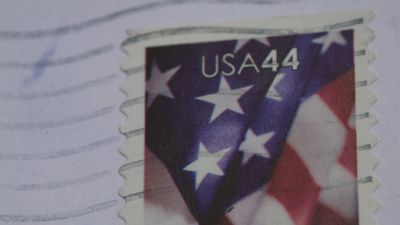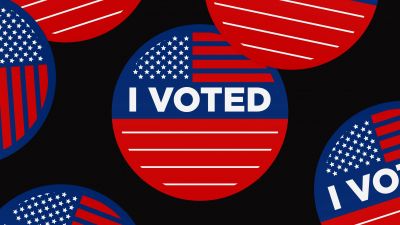
August 6th marked the 55th anniversary of the Voting Rights Act
We have partnered with The Guardian’s The Fight to Vote project to present crucial reporting on safeguarding the vote in the US.
— Ankita Rao, The Guardian
Read more from The Guardian’s special Voting Rights anniversary coverage.
The American Promise
On March 7, 1965, activist John Lewis led hundreds of civil rights marchers across the Edmund Pettus Bridge in Selma, Alabama. The group was set to march over 50 miles to Montgomery to protest the police murder of Jimmy Lee Jackson, but they never made it to their destination. In Selma, state troopers attacked the protesters, brutally beating them and inciting chaos. Footage of the violent event, which is now known as “Bloody Sunday,” sent shockwaves across the nation and galvanized citizens and lawmakers alike to advocate for voting rights legislation.
Following the event, President Lyndon B. Johnson and his staff were besieged with calls from congressmen and senators, all asking the administration to introduce voting legislation. At the time, the administration was in the process of secretly drafting a voting rights bill. Johnson wanted to take time to ensure that the legislation was airtight, but the outrage provoked by Bloody Sunday put pressure on him to get it to Congress quickly. Johnson then created a bill that would provide direct federal intervention against the suppression of the Black vote — it was designed to outlaw the racially discriminatory voting practices that were widespread in the Jim Crow era.
Just a week after Bloody Sunday, President Johnson addressed Congress, urging lawmakers to pass the voting rights bill. In what is now regarded as his most impressive speech, Johnson argued that the bill was an attempt to “make good the promise of America”:
“As a man whose roots go deeply into Southern soil I know how agonizing racial feelings are. I know how difficult it is to reshape the attitudes and the structure of our society. But a century has passed, more than a hundred years, since the Negro was freed. And he is not fully free tonight. It was more than a hundred years ago that Abraham Lincoln, a great President of another party, signed the Emancipation Proclamation, but emancipation is a proclamation and not a fact. A century has passed, more than a hundred years, since equality was promised. And yet the Negro is not equal. A century has passed since the day of promise. And the promise is unkept. The time of justice has now come.
Unfinished Work
President Johnson signed the Voting Rights Act 55 years ago, yet the discriminatory practices that Johnson sought to remedy are still prevalent today. In 2013, the Supreme Court gutted the Voting Rights Act of 1965. In a 5-to-4 ruling, the court struck down Section 4 of the act, thereby allowing states to make changes to election laws without federal clearance.
The ruling allows states to continue to pass laws that make it harder for Americans to vote, and, often, these restrictions disproportionately affect people of color and the poor.
Advocates of restrictions, such as voter ID requirements, argue that they prevent voter fraud. Critics, however, say that restrictions like these are all about politics. In a 2014 interview with Bill Moyers, Michael Waldman of the Brennan Center for Justice stated that, “These laws are so partisan and so particular in slicing away certain segments of the electorate.”
The Fight to Vote Continues
Since the death of John Lewis, Democrats have been pushing for the Voting Rights Act to be updated. Activists and lawmakers who have long fought to restore protections for Black voters argue that renewing the act would be a worthy tribute of the civil rights icon. Republicans oppose the proposed changes, with senators such as Mitch McConnell dismissing the notion that racially discriminatory voting practices still exist.
In an op-ed published in the New York Times after his death, John Lewis gave a final call to action, asking Americans to continue to battle the forces that threaten our democracy: “The vote is the most powerful nonviolent change agent you have in a democratic society. You must use it because it is not guaranteed. You can lose it.”



